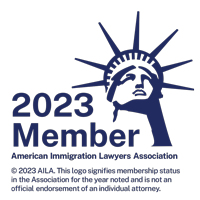For around one-quarter of a century, the U.S. used the 30/60-day rule to determine whether a person was eligible to receive a visa or to enter the United States. The 30-day aspect of the rule involved determining if a visitor to the U.S. misrepresented his or her intent for being in the country by violating nonimmigrant status. Violations included things like taking on unauthorized jobs or applying for adjustment of status.
The 60-day rule was similar and involved similar actions taking after 30 days but before 60 days had elapsed after the visitor entered the U.S. In that case, misrepresentation of intent wasn’t automatically assumed, but suspicion was raised and the visitor could expect to be questioned about it. Finally, if the actions took place 60 days after arriving in the U.S., misrepresentation wasn’t a factor nor was the visitor questioned about it.
How Does the 90-Day Rule Change the Former Policy?
On Sept. 16, 2017, the 90-day rule was officially introduced. Now, anyone who engages in the following actions or conduct within 90 days of entry into the U.S. may be presumed to have misrepresented his or her intent for entering the country:
- Engaging in unauthorized employment
- Enrolling in a course of unauthorized academic study
- Marrying a U.S. citizen or lawful permanent resident and taking up residence in the U.S. while in a nonimmigrant visa classification that prohibits immigrant intent
- Engaging in any activity that would otherwise require change of status or adjustment of status.
Visitors who are believed to have misrepresented their intentions for visiting the country can present evidence rebutting that assumption. In addition, visitors who engage in conduct that’s inconsistent with their nonimmigrant status 90 days after arriving in the U.S. aren’t subject to presumption of misrepresentation.
People who may be affected by the new 90-day rule include those who entered the U.S. as visitors or students and violated their visas by working, marrying U.S. citizens, or attending school without student visas.
The change from the 30/60-day rule to the 90-day rule has widespread implications for many people in the U.S., including those in Knoxville in East Tennessee. If you have questions or concerns about your immigration status or what you should do in the aftermath of this new rule, we’re here to help.

